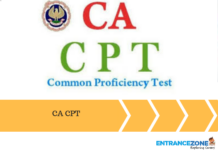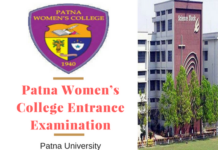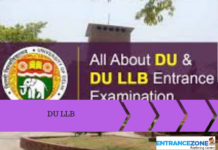NCERT Solutions for Class 12 Sociology 2024 is available here in pdf format. NCERT Solutions for Class 12 Sociology Chapter 1 are available for free. Students can download the NCERT Sociology Class 12 Solutions Chapter 2 from the pdf links provided in the article. The solutions and question answers of Sociology Class 12 are based on the latest NCERT syllabus and curriculum. It is an important resource for exam preparation. Students appearing for the class 12 board exam must download and study from the NCERT solutions for Class 12 Sociology. After completing the syllabus of class 12 Sociology, students must start practising the model papers and previous year’s question papers of Sociology for class 12. Read the complete article to download the NCERT Class 12 Sociology Solutions PDF.
Admission Open 2023
- Top University & Colleges Official Links, Application & Scholarship Forms.
Check CBSE 12th Time Table 2024: Important notification, check @ cbse.gov.in
Download NCERT Solutions for Class 12 Sociology- All Chapters PDF
Sociology is an important subject for Arts stream students who pursue Humanities in class 12. CBSE prescribes the NCERT textbook of Sociology in class 12 syllabus. The course pattern and curriculum are decided as per the latest updated syllabus. NCERT Solutions for class 12 Sociology chapter 4 will help the students to learn and understand the important topics for the exam. This will also help the students to easily understand some of the critical terms and concepts. The language of the NCERT Solutions Sociology Class 12 is very comprehensive so that everyone could understand the topics. In this article, we have given the pdf links to download each chapter-wise NCERT Sociology Solutions.
Subscribe to Get Updated Information about NCERT Solutions for Class 12 Sociology 2025: Chapter-Wise Solution PDF - Admissions
NCERT Class 12 Sociology Chapter 1: Introducing Indian Society solutions
NCERT Chapter 1 is based on the basic concepts about the Indian Society. The chapter opens with a detailed description of Colonialism. The policy or practice of colonization started during the Industrial Revolution when the western countries extended control over the Asian and African countries to fetch cheaper raw materials for their industries. They tried to acquire full or partial control over their resources by exploiting them economically and politically.
NCERT Class 12 Sociology Chapter 2: The Demographic Structure of the Indian Society solutions
NCERT Class 12 Sociology Chapter 3: Social Institutions: Continuity and Change solutions
NCERT Class 12 Sociology Chapter 4: The Market as a Social Institution solutions
NCERT Class 12 Sociology Chapter 5: Patterns of Social Inequality and Exclus solutions
In chapter 5 NCERT, Patterns of Social Inequality and Exclusion, we discuss the important concepts of Caste and Tribe – Systems Justifying and Perpetuating Inequality, Introduction to Pattern of Social Inequality and Exclusion, Struggle for Women’S Equality and Rights, The Struggles of the Disabled, What is Social About Social Inequality and Exclusion?
NCERT Class 12 Sociology Chapter 6: The Challenges of Cultural Diversity solutions
Concepts covered in Chapter 6 The Challenges of Cultural Diversity are Cultural Communities and the Nation-state, Introduction to the Challenges of Cultural Diversity, Regionalism in the Indian Context, State and Civil Society, The Nation-state and Religion-related Issues and Identities. The meaning of unity in diversity is that all the people live with each other in peace and harmony even if they have many differences among them. Many religions, cultures, races, etc., exist in our country but they live amicably with each other. This unity in diversity cannot be seen anywhere else but in India.
Sociology Class 12 Important Questions Part B Social Change and Development in India
NCERT Solutions for Class 12 Sociology chapter 1 Part B- Structural Change
Concepts covered in Class 12 Sociology – Social Change and Development in India chapter 1 Structural Change are Introduction to Structural Change, Understanding Colonialism, Urbanisation, and Industrialisation. When changes start to come about in the views and ways of working for most of the people of society, then it is known as social change. When change occurs in the desired direction, then it is known as progress. The change which occurs against our wish, that change cannot be called progress. In this way, every change cannot be called progress.
NCERT Solutions for Class 12 Sociology chapter 2 Part B- Cultural Change
Concepts covered in Class 12 Sociology – Social Change and Development in India chapter 2 Cultural Change are Introduction to Cultural Change, Social Reform Movements in the 19th and Early 20th Century, How Do We Approach the Study of Sanskritisation, Modernisation, Secularisation and Westernisation, Different Kinds of Social Change.
NCERT Solutions for Class 12 Sociology chapter 3 Part B- The Story of Indian Democracy
Concepts covered in Class 12 Sociology – Social Change and Development in India chapter 3 The Story of Indian Democracy are Introduction to the Story of Indian Democracy, The Indian Constitution, The Panchayati Raj and the Challenges of Rural Social Transformation, Political Parties, Pressure Groups, and Democratic Politics. India is a welfare state whose main aim is to work for the welfare of the people. The welfare state plays an important role in the welfare of the people of the country. It works for the economic development of weaker sections and backward classes of the country. It makes laws for women and children so that no one gets exploited.
NCERT Solutions for Class 12 Sociology chapter 4 Part B- The Story of Indian Democracy
In Chapter 4 of NCERT Class 12 Sociology – Social Change and Development in India chapter 4 Change and Development in Rural Society, we discuss the Introduction to Change and Development in Rural Society, Agrarian Structure: Caste and Class in Rural India, The Impact of Land Reforms, The Green Revolution and Its Social Consequences, Transformations in Rural Society After Independence, Circulation of Labour, Globalisation, Liberalisation, and Rural Society.
NCERT Solutions for Class 12 Sociology chapter 5 Part B- Change and Development in Industrial Society
In NCERT Class 12 Sociology – Social Change and Development in India chapter 5 Change and Development in Industrial Society we discuss the Introduction to Change and Development in Industrial Society, Images of Industrial Society, Industrialisation in India, How People Find Jobs, How is Work Carried Out?, Working Conditions, Home-based Work, Strikes and Unions.
NCERT Solutions for Class 12 Sociology chapter 6 Part B Globalisation and Social Change
In this chapter, we discuss the Introduction to Globalisation and Social Change, Are Global Interconnections New to World and to India, Understanding Globalisation. Globalization has greatly affected social relations and religious identity. It has greatly affected fashion, eating habits, the nature of consumption, and the living styles of the people. Now everything in one part of the world is available in another part of the world.
NCERT Solutions for Class 12 Sociology chapter 7 Part B Mass Media and Communications
In this chapter, we discuss the Beginnings of Modern Mass Media, Mass Media in Independent India, Globalisation, and the Media. The word ‘Mass Communication’ is made up of two words. ‘Mass’ means the masses of people, and ‘Communication’ means the process of giving and receiving information. In this way, mass communication is that process in which information is being given to the people through modern means like satellite, computer, television, radio, etc. The feedback is also received from the audience in the form of complaints and appreciation.
NCERT Solutions for Class 12 Sociology chapter 8 Part B Social Movements
In this chapter, we see the Introduction to Social Movements, Features of a Social Movement, Sociology and Social Movements, Types of Social Movements, Ecological Movements, Class-Based Movements, Caste Based Movements, The Tribal Movements, Womens’ Movement in India. A movement that started to remove the existing social evils and ills of society is known as socio-reform movements. The main aim of the socio-reform movement is to remove the existing social evils from the society and to make social life progressive.
NCERT Solution for Class 12 Sociology- All Chapters
NCERT Sociology Class 12 Solutions are given below for all Chapters. Students can click on the link of the respective Chapter number to download Class 12 Sociology NCERT Chapter-wise Solutions.
NCERT Solution for Class 12 Sociology I Book (Indian Society)
| Chapter Name | PDF Link |
| NCERT Solutions for Class 12 Sociology Chapter 1 Introducing Indian Society | Download PDF |
| NCERT Solutions for Class 12 Sociology Chapter 2 The Demographic Structure of the Indian Society | Download PDF |
| NCERT Solutions for Class 12 Sociology Chapter 3 Social Institutions: Continuity and Change | Download PDF |
| NCERT Solutions for Class 12 Sociology Chapter 4 The Market as a Social Institution | Download PDF |
| NCERT Solutions for Class 12 Sociology Chapter 5 Patterns of Social Inequality and Exclusion | Download PDF |
| NCERT Solutions for Class 12 Sociology Chapter 6 The Challenges of Cultural Diversity | Download PDF |
NCERT Solutions for Class 12 Sociology II Book (Social Changes and Development in India)
| Chapter Name | PDF Link |
| NCERT Solution for Class 12 Sociology Chapter 1 Structural Change | Download PDF |
| NCERT Solution for Class 12 Sociology Chapter 2 Cultural Change | Download PDF |
| NCERT Solution for Class 12 Sociology Chapter 3 The Story of Indian Democracy | Download PDF |
| NCERT Solution for Class 12 Sociology Chapter 4 Change and Development in Rural Society | Download PDF |
| NCERT Solution for Class 12 Sociology Chapter 5 Change and Development in Industrial Society | Download PDF |
| NCERT Solutions for Class 12 Sociology Chapter 6 Globalisation and Social Change | Download PDF |
| NCERT Solutions for Class 12 Sociology Chapter 7 Mass Media and Communications | Download PDF |
| NCERT Solutions for Class 12 Sociology Chapter 8 Social Movements | Download PDF |
Other Important Links on CBSE Class 12



















